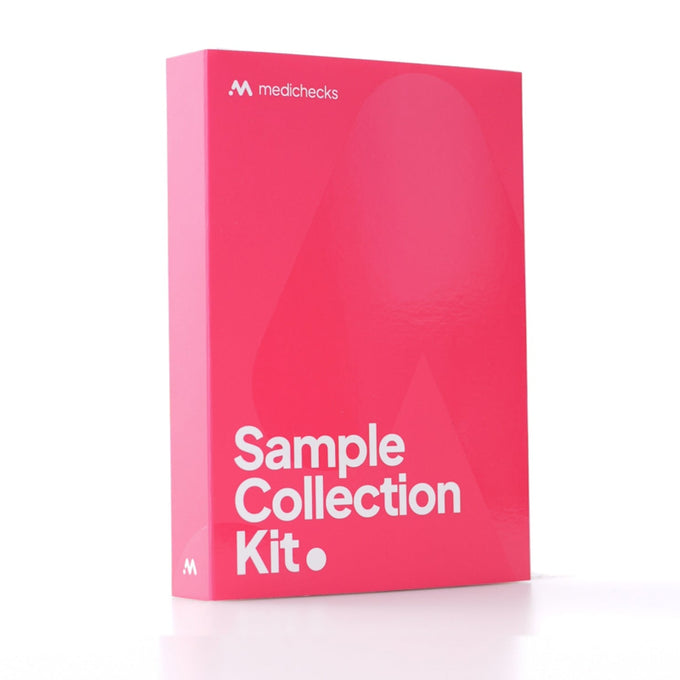Folate (Vitamin B9) is essential for red blood cell production, DNA synthesis, and overall energy levels. This test checks your folate levels to identify deficiencies that can contribute to fatigue, weakness, and anaemia. It is particularly useful for those with dietary restrictions or symptoms of low energy. Folate is especially important during pregnancy, as demands increase to support fetal development and maternal health.




Folate (Serum) Blood Test
- Results estimated in 3 working days
- Convenient testing options
- Free delivery
Measures serum folate, an important B vitamin for red blood cell formation, energy metabolism, and nervous system function.
How do you want to take your sample?
Please choose one option below-
Book a venous draw at a clinic Venous+£35Visit one of our national clinic partners for a nurse to take your venous blood sample from a vein in your arm. We’ll email you instructions on how to book after we’ve processed your order.
-
Book a venous draw at home with a nurse Venous+£59Book a home nurse appointment for a nurse to take your venous blood sample from a vein in your arm.
-
Self-arrange a professional sample collection VenousFreeMake an appointment at a phlebotomy clinic to have your venous blood sample taken. You will be responsible for arranging your appointment and any additional fees.
18+ Only. T&Cs apply.
Find your nearest clinic

Go beyond the numbers
Get ready to elevate your health understanding with a personalised doctor's report. Go beyond results and tap into expert insights tailored just for you.
- Actionable advice
- Expert support
- Tailored recommendations

How it works
You have the flexibility to choose what works best for you. Enjoy the comfort of having a friendly nurse visit your home for a quick blood draw, opt for a convenient visit to one of our nationwide partner clinics, or self-arrange a draw at a location that suits you.
Take control of your health with Medichecks – order your blood test today!

Track, improve, and monitor your health over time.
MyMedichecks is your personal online dashboard where you can view your results, access clear and simple explanations about individual health markers, monitor changes in your health, and securely store information about your medical history, lifestyle and vital statistics.
Supported by a team of specialist and qualified doctors
Dr Natasha Fernando
Medical DirectorDr Tina Ghela
Digital Clinician LeadDr Susanna Hayter
Digital Clinician
What's in the test?
Vitamins
Folate - serum
Learn more
How to prepare for your test
Prepare for your Folate (Serum) Blood Test by following these instructions. Take your sample at least 24 hours after any vitamin or mineral supplements. Do not take biotin supplements for two days before this test, discuss this with your doctor if it is prescribed.
Test limitations
Reviews
FAQs
Why do pregnant women need folate?
Pregnant women require an increased amount of folate for proper foetal development as folate is necessary for healthy cell division. Low folate levels may lead to neural tube defects in the developing foetus.
Are folate and folic acid the same thing?
Vitamin B9, folic acid, and folate are often used interchangeably. While folate and folic acid are similar, there are differences. Folate is a water-soluble B vitamin, so the body can't store it, and we need to ingest it through the foods we eat. Most people should be able to get the amount they need by eating a varied and balanced diet. Folic acid is a synthesised version of folate produced in a laboratory and found in supplements and fortified foods such as cereals. For more, read our blog: Folate vs. folic acid - what's the difference?
What is folate?
Folate, or vitamin B9, is a water-soluble B vitamin found in foods such as leafy greens, cooked dried beans, peas, lentils, spinach and asparagus. It is also added to fortified foods such as breakfast cereals. Folate is necessary for normal red cell formation, tissue and cellular repair and DNA synthesis.
